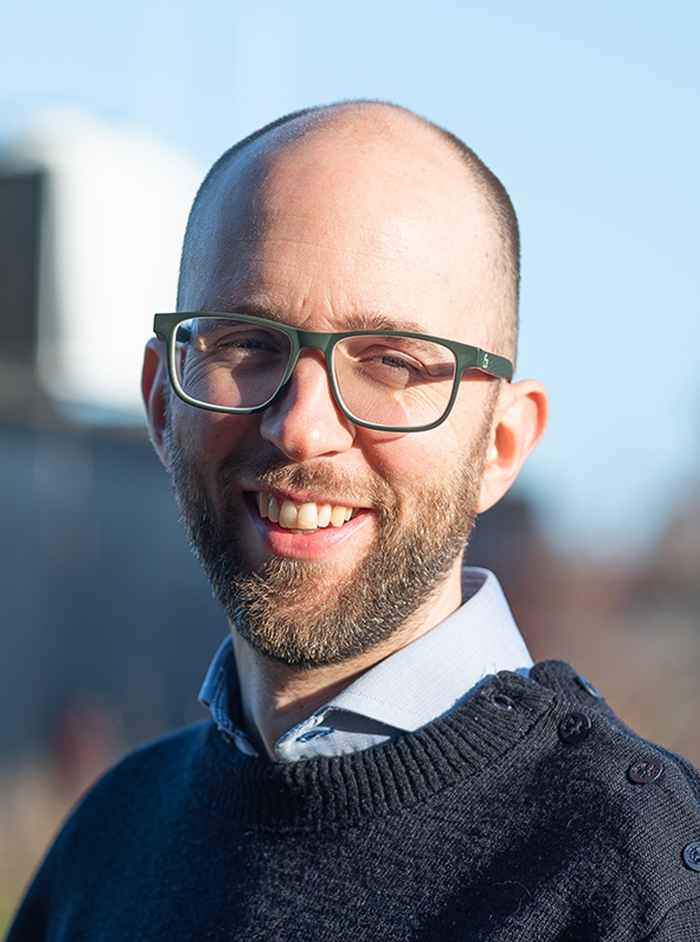Dedmer van de Waal named Professor by special appointment of Aquatic Functional Ecology
4 July 2022

In his research, Van de Waal connects the different organisational levels within an ecosystem, varying in scale from processes occurring inside cells to interactions between organisms. This is also referred to as ‘functional ecology’, for which Van de Waal will apply and further develop two conceptual frameworks. Firstly, Van de Waal is intrigued by what is known as trait-based ecology. ‘I study the characteristics of organisms, focussing on algae, and explore how those traits determine their success within aquatic ecosystems.’ Van de Waal's other area of expertise is ecological stoichiometry. This term, which comes from the study of chemistry, means that the number of elements remains the same before and after a chemical reaction. Dr Van de Waal explains: ‘This applies to ecological reactions as well. All organisms are made up of elements, and just like in chemistry, the interactions taking place between those elements are subject to a mass balance.’
Effects of changing climate and habitats
Van de Waal's work focuses on global environmental change. ‘Take, for instance, the effects that greater quantities of CO2 and nutrients such as nitrogen are having on food webs.’ One of his areas of study is how these changes are impacting harmful algal blooms in both freshwater and coastal marine systems. ‘Within these algal species, some individuals are toxic and others are not. The degree of toxicity therefore depends not only on the production of a toxin and the biomass of algae, but also on the population structure.’
Another topic Van de Waal deals with in his work is how relative availability of the nutrients nitrogen and phosphorus affects the ecology of parasites such as viruses and fungi. ‘Like all organisms, viruses and fungi need a certain amount of these elements, and we are seeing that parasitic infections are sensitive to changes in the relative levels of these elements in their host. This can carry over onto the success of a given species including harmful algae, but we also observe this in plants.’
Transcending borders
As a professor at UvA, Van de Waal will combine the areas of expertise of the NIOO's Aquatic Ecology department with those of the groups at the IBED, thereby facilitating collaboration between the two institutes. ‘The ecological concepts I deal with in my work can help to transcend bounderies. That might mean a boundery between freshwater and salt water, or between land and water.’
The Professorship by special appointment of Aquatic Functional Ecology is new at the UvA's Institute for Biodiversity and Ecosystem Dynamics (IBED). Van de Waal will contribute to education within the Master's track in Freshwater and Marine Biology, part of the Biological Sciences Master's. He will also supervise a number of PhD candidates and trainees.
About Dedmer van de Waal
Dedmer van de Waal has been working as senior researcher at the Netherlands Institute of Ecology (NIOO-KNAW) since 2013, including two years as acting head of the Aquatic Ecology department. After completing his doctoral research at the UvA, which was conducted in cooperation with the NIOO-KNAW, in 2010, he worked as a post-doc at the Alfred Wegener Institute for Polar and Marine Research in Bremerhaven, Germany. He received the ISSHA Young Scientist Award in 2016, followed by the ASLO Early Career Award in 2020. In March 2022, Van de Waal received a prestigious ERC Consolidator Grant from the EU. Van de Waal serves on the editorial boards of several leading scientific journals, as well as on the executive boards of various organisations that make research on toxic algae available to the public.